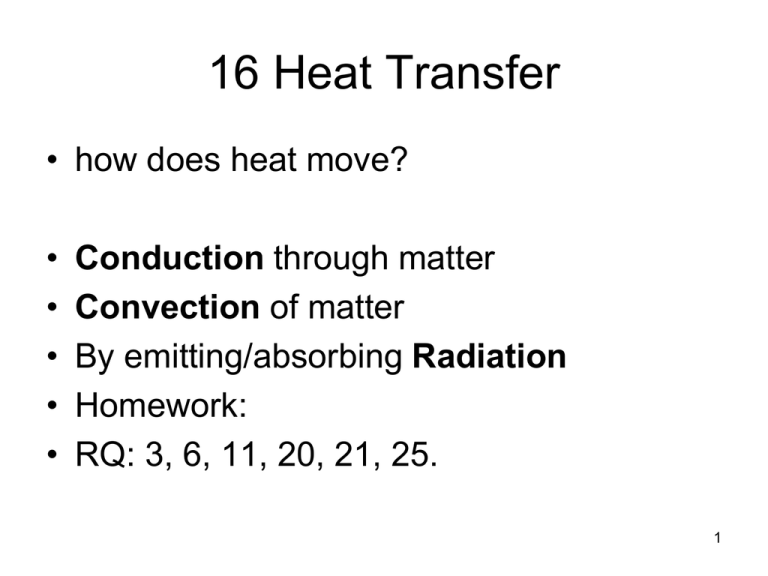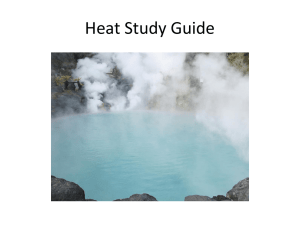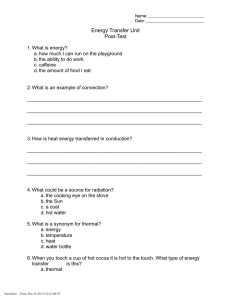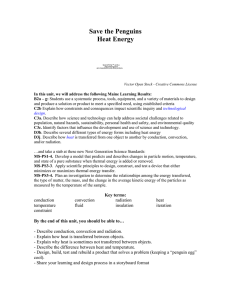16 Heat Transfer • how does heat move? Conduction Convection
advertisement

16 Heat Transfer • how does heat move? • • • • • Conduction through matter Convection of matter By emitting/absorbing Radiation Homework: RQ: 3, 6, 11, 20, 21, 25. 1 Conduction • Heat conduction is the transmission of heat through matter. • most metals are excellent conductors • Examples: • silver 429 copper 401 aluminum 250 • iron 80 stainless steel 14 • wood, rubber 0.16 2 conduction • • • • heat current – energy/time heat current = kADT/L k = thermal conductivity & DT = temperature difference, L below 3 Convection • Convection – transfer through bulk motion of a fluid • Natural, e.g. warm air rises, cool falls • Forced, e.g. water-cooled engine 4 Convection Videos • Hot & Cold Water • Smoke in Air • Hot air in tube with candle 5 Radiation • Radiation - objects emit infrared electromagnetic radiation, which can be absorbed in another object, heating it up. • Ex. Stand by a brick house at night. You feel heat but cannot see it. 6 Radiation Video • Tv ontario cartoon 7 Solar Power • Earth surface gets about 800 watts / m². • Convection power turbine 8 Newton’s Law of Cooling • rate of heat loss is proportional to the difference in temperatures between the body and its surroundings • rate of heat-loss ~ DT • Ex. Cooling of hot coffee 9 Summary • Three modes of heat transfer, conduction, convection, radiation • Good conductors: Metals • Poor conductors: Wood, air 10 Greenhouse Effect • ‘dirtier’ air must be at higher temperature to radiate out as much as Earth receives • higher temperature air is associated with higher surface temperatures, thus the term ‘global warming’ • very complicated model! 11 Real Greenhouse • covering allows sunlight to enter, which warms the ground and air inside the greenhouse. • the ‘house’ is mostly enclosed so the warm air cannot leave, thus keeping the greenhouse warm (a car in the sun does this very effectively!) 12 What determines surface temperature of earth? • (Heat IN) Earth receives two radiative heats: 1) direct sunlight 2) atmospheric radiative emission • (Heat OUT) Earth re-radiates heat out ~ T4. • Surface temperature rises or falls to balance the two inputs. 13


![Applied Heat Transfer [Opens in New Window]](http://s3.studylib.net/store/data/008526779_1-b12564ed87263f3384d65f395321d919-300x300.png)
